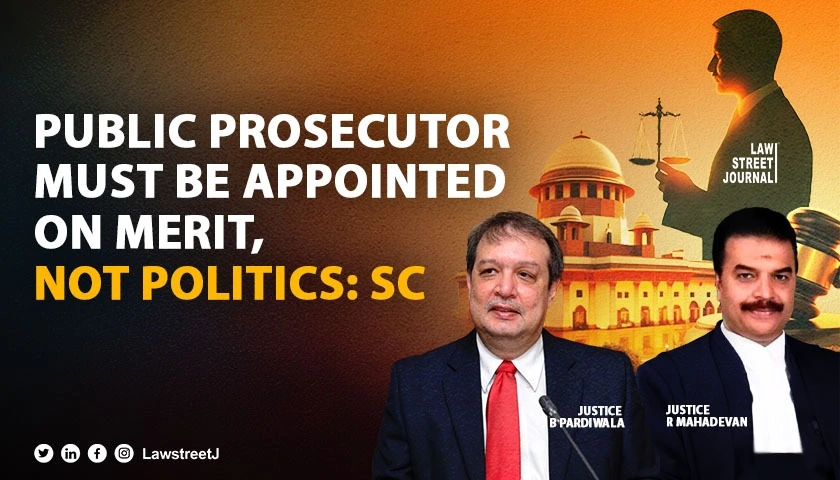NEW DELHI: The Supreme Court has held the Haryana government as liable to pay Rs 5 lakh each as compensation to three persons for their unlawful imprisonment in a murder case, emphasising that the public prosecutor must be appointed solely on merit, not on political considerations, or by favouritism and nepotism.
SC Slams Political Appointments of Public Prosecutors, Orders ₹5L Compensation Each for Wrongful Conviction
A bench of Justices J B Pardiwala and R Mahadevan noted the public prosecutor failed to assist the High Court in arriving at correct decision.
"Judges are human beings and at times they do commit mistakes. The sheer pressure of work at times may lead to such errors. At the same time, the defence counsel as well as the public prosecutor owes a duty to correct the court if the court is falling in some error and for all this," the bench said.
Haryana Govt Liable for Unlawful Imprisonment, SC Emphasizes Merit-Based Prosecutor Appointments
In its judgment on January 29, 2025, the bench allowed appeals filed by Mahavir and others, and set aside the Punjab and Haryana High Court's judgment of August 27, 2024, which held them guilty in a 1998 murder case.
Having gone through facts of the matter, the bench said, "It is as clear as a noonday that the High Court committed an egregious error in reversing the acquittal and passing an order of conviction in exercise of its revisional jurisdiction and that too without affording any opportunity of hearing to the appellants herein."
The appellants, who were in their 60s and 70s, contended they suffered unjust imprisonment for over three months until they were granted bail by the Supreme Court on December 13, 2024 in the case.
Their counsel contended the High Court reversed the order of acquittal, on a revision petition filed by the father of the deceased, 26 years after the incident and 20 years after the trial court's judgment, in view of failure of the public prosecutor to render proper assistance.
Concurring with the submission, the bench held the state government responsible. "It is the state government who appointed the concerned public
prosecutor. The state government should be asked to pay compensation to the three appellants herein," the bench said.
The court pointed out the object of the CrPC and the rules is to appoint the best among the lawyers as the public prosecutor to provide assistance to the court.
It said the law officers are one of the important wheels of the chariot, driven by the judges to attain the cherished goal of human being to secure justice against the wrong doers.
In the year 2006 when the judgement of acquittal was passed, the de facto complainant had no right to challenge by way of filing the appeal, the court said.
"The 2009 amendment made in Section 372 CrPC created a substantive right of appeal for the victim but this is not retrospective in nature," the bench said.
In the case, the bench said, the most distrubing feature was that the public prosecutor instead of assisting the HC in the right direction by pointing out the correct position of law went to the extent of demanding the capital punishment.
"Such is the standard of the public prosecutors in the High Courts of the country. This is bound to happen when the state governments across the country appoint AGPs and APPs in their respective High Courts solely on political considerations. Favouritism and nepotism is one additional factor for compromising merit," the bench said.
The court said this judgement is a message to all the state governments that the AGPs and APPs in respective High Courts should be appointed solely on the merit of the person.
"The state government owes a duty to ascertain the ability of the person; how proficient the person is in law, his overall background, his integrity etc," the bench said.
The court finally directed the Haryana government to pay Rs 5 lakh each to three appellants within four weeks.

















